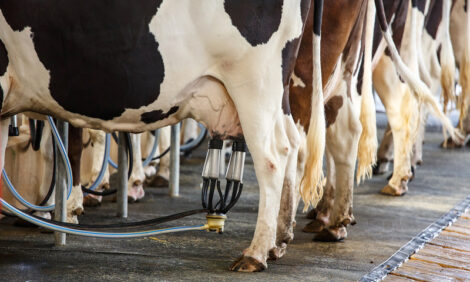



NZ Organisations Team Up to End Calf Mistreatment
NEW ZEALAND - Seven industry associations, along with the Ministry for Primary Industries, have joined together to eradicate the mistreatment of bobby calves.DairyNZ, the Meat Industry Association, Federated Farmers, the Road Transport Forum, the New Zealand Petfood Manufacturers Association, the Dairy Companies Association of New Zealand, the New Zealand Veterinary Association, and the Ministry for Primary Industries have made a joint commitment to stamp out any mistreatment.
The organisations and their members will be working together and individually to develop measures to ensure poor practice is eradicated, following the release of an undercover video purporting to show cruelty to calves last week.
DairyNZ Chief Executive Tim Mackle said there has been a lot of discussion over the last few days – and the dairy industry is now focussed on its next steps.
“Resolving these issues will depend, not on words, but on actions. We are committed to working with everyone in the supply chain to ensure bobby calves are well cared for. We have ensured good practice advice is available to all dairy farmers and that they have forums available where they can share their own good management practices with others.”
Tim Ritchie, Chief Executive of the Meat Industry Association said that the meat processing and export industry is subject to a comprehensive regulatory framework. He said that the meat industry, together with the dairy industry is undertaking a systematic review from farm to processor to identify any opportunities for improvement and this will be completed before the next bobby calf season.
Richard Brake, Chief Executive of the New Zealand Petfood Manufacturers Association said there were very strong codes in place for the treatment of bobby calves on farm, during transport and in processing.
“The vast majority of New Zealand’s dairy farmers, transport operators and processors uphold and, in many cases, exceed these world-class codes,” Mr Brake said. “We want everybody to uphold them. That’s what we will all be working on.”
Andrew Hoggard, Dairy Industry Group Chairperson of Federated Farmers said, “One of the things we are proud of that has emerged over the past few days is the reaction of many farmers. There has been disappointment, sadness, frustration and anger.
“This is not how we do things. Farmers are proud people and when we get the bit between our teeth we make things happen. We know the majority of farmers will back this coalition and commitment, and will work with us to eradicate bad practice.”
Ken Shirley, Chief Executive of the Road Transport Forum said, “Our organisations and the companies and farmers we represent, have a track record of working together on this issue.
“We have all had important roles in putting the current, strong codes of practice in place and supporting their implementation through training and education. We are committed to the next stage.”
Kimberly Crewther, Executive Director of Dairy Companies Association of New Zealand said, “Dairy companies share the wider industry and public’s concern at the unacceptable conduct of a small number of individuals.
“We fully support this joint approach with other dairy and meat sector participants to ensure full compliance with animal welfare requirements. All DCANZ members require compliance with animal welfare requirements as a condition of supply and will continue to do so."
Julie Hood, Chief Executive of the New Zealand Veterinary Association said, “New Zealand’s animal stewardship is something we can be proud of. Our veterinary profession is committed to working as part of a united industry to stamp out the small minority who breach animal welfare standards.
“We must maintain our reputation as world leaders in animal welfare and the best way to do that is by veterinarians, farmers and wider industry working in partnership to improve compliance.”
Scott Gallacher, Deputy Director General of the Ministry for Primary Industries said, “New Zealand has a very strong record and international reputation for our animal welfare system.
“One of the ways that has been achieved is government and industry working together. This joint commitment is a strong signal of how seriously we all take this matter.
“MPI is committed to participating actively and working with industry to close any gaps that might be identified in regulatory frameworks.”
TheCattleSite News Desk


